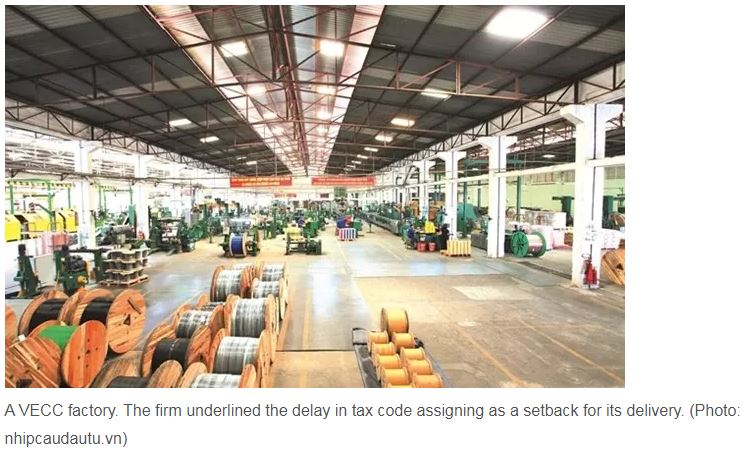Vietnam: Obstacles get in the way of e-tax payments
A representative from FK Trading Ltd. revealed that his firm filed the tax forms for the financial year 2021 early this year, but later found that it had made mistakes related to the income tax of Q4/2021.
The firm filed an additional tax form under Circular 80 to correct the mistakes but the portal said the tax form took effect in Q1/2022 instead of Q4/2021.
It repeated the procedures with another tax form under Circular 92 but this time it was unable to submit the form to the portal.
The Vietnam Electric Cable Corp. (VECC) complained that the delay in tax code assigning had added time to its delivery.
“We send invoice data to tax authorities in the morning but it is not until the evening that we are assigned tax codes. We have had to put delivery on hold to wait for the codes,” the firm said.
VECC also noted that some of its partners refused to accept its e-invoices with seven first digits of zero, citing that Circular 87 does not recognise such invoices.
Regarding the VAT cut from 10 percent to 8 percent, a printing firm was confused about the tax rates applicable to its business.
The firm said it had issued invoices with VAT rates of 10 percent for its backdrop products but its customers are at odds with such rates, claiming that the rates must be 8 percent.
“Which rate is applicable to our products?” the firm asked.
The situation is more complicated for Huong Thanh Binh Trading Construction Ltd. (HTB), which is subject to a non-resident VAT rate of 2 percent and will not receive a tax refund for its overpaid tax until 2023.
“Around 80 percent of our construction materials are levied VAT rates of 10 percent. Meanwhile, we are required to issue invoices with VAT rates of 8 percent. That means we overpay VAT,” explained the firm.
The firm requested that it either be eligible for a tax refund or exempt from non-resident tax. Otherwise, double taxation would worsen its financial situation.
In response to the case of FK Trading Ltd., representatives from Ho Chi Minh City’s Tax Department affirmed that tax forms under the Circular 92 are suitable for tax declaration for the tax period before January 1, 2022.
“FK has filed the correct tax forms. Regarding the portal’s refusal, the firm should contact the tax declaration unit for technical support,” they said.
For the case of VECC, the representatives held that the delay in tax code assigning was due to technical errors. Taxpayers are recommended to call relevant units any time they encounter the errors.
“Invoices with the seven first digits of zero are valid, so it is compulsory for the partners to accept the firm’s invoices,” they added.
Concerning the tax rates on the printing firm, the representatives revealed that most input materials in the printing industry are subject to VAT rates of 10 percent.
Meanwhile, printing products are taxed at 8 percent under Decree 15. That means the firm is required to issue invoices with VAT rates of 8 percent and the ensuing differential amount is deductible.
In regard to the construction firm HTB, the Deputy Director of the tax department Nguyen Tien Dung admitted that non-resident VAT is one of the major taxes in the construction industry.
He revealed that the tax had been adjusted down to 1 percent since early 2022.
“We welcome requests from firms and we will send the requests to higher tax authorities so the latter may change tax policies to keep up with the times,” he said.


 Thailand
Thailand




